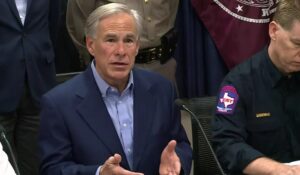On Monday, Senator Ed Markey took to the Boston Common bandstand to address a crowd gathered in solidarity with Israel, denouncing what he called Hamas’ “heinous attacks” on Israel. However, his call for a “de-escalation of the current violence” from both sides was met with a chorus of boos, revealing deep divisions among Massachusetts Democrats on how to approach the escalating crisis in the Middle East.
The rally, organized by Jewish groups and attended by several prominent politicians, showcased the stark contrasts in opinions within the state’s Democratic Party concerning the Israel-Palestine conflict. The crisis has claimed the lives of at least 11 U.S. citizens and hundreds of Israelis and Palestinians.
At one end of the spectrum are progressive leaders like Senator Markey and Representative Ayanna Pressley, both advocating for de-escalation, with Pressley calling for an “immediate ceasefire.” Their calls reflect the concerns of those who prioritize diplomatic solutions and seek to quell the violence.
On the other side stands Representative Jake Auchincloss, a Jewish military veteran, who called upon President Joe Biden to provide Israel with “all military and diplomatic support necessary” in its fight against the Palestinian militant group, Hamas. Auchincloss garnered enthusiastic cheers from the crowd as he emphasized that “de-escalation is not possible when [Hamas is] taking hostages,” directly contradicting Markey’s stance.
The divide among Massachusetts Democrats doesn’t end with these prominent figures. Governor Maura Healey voiced her unwavering support for Israel, stating that “Massachusetts stands with Israel now and always.” Senator Elizabeth Warren described the U.S. as a “strong and faithful ally” to Israel and reiterated her commitment to Israel’s safety and security. Boston Mayor Michelle Wu declared, “Boston stands with Israel,” while Treasurer Deb Goldberg called for a “two-state solution.”
These disparate views among Massachusetts Democrats mirror the broader divisions within the Democratic Party over the Israel-Palestine conflict. If the conflict continues to escalate, these divisions could pose a challenge for President Biden, who is already facing criticism from Republicans regarding his administration’s Middle East policies. As Biden navigates this complex foreign policy issue, he must also address the divergent opinions within his own party, both at home and abroad.





